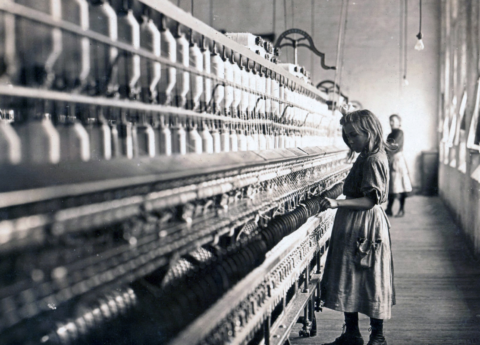A number of state policies are now in play that would cut off access to financial assistance for Kentuckians who are unemployed and struggling to get by. All of a sudden, denying help to the jobless has become a high priority for some lawmakers.
A prime example is Medicaid, where the governor’s waiver takes health coverage from those without a job or in a job with too few hours. Similarly, the administration is reinstating rules suspended since the Great Recession that will limit jobless Kentuckians to three months of SNAP (food stamp) benefits. And a bill in the General Assembly would cut off unemployment insurance much more quickly whether or not there are jobs available in one’s community or occupation.
The policy bias against those currently unemployed is so strong that any assistance not aimed at getting people immediately to work – regardless of job quality – is on the chopping block. Another proposal this legislative session would actually deny or limit the ability of low-income students to use KEES scholarships they have earned to obtain 2- or 4-year college degrees, encouraging them to be used instead for short-term job training while in high school.
Underlying all of these policies is an assumption that the economy is producing plenty of good jobs for those simply willing to work. From this perspective, any joblessness must only be the result of bad choices made by individuals — and not from shortcomings of public policy, barriers facing certain people and communities, or failures of corporate responsibility.
A closer look shows this assumption to be a myth.
While the economy continues to improve, the state’s job numbers still have not fully recovered from the Great Recession. If Kentucky had the level of jobs we achieved back in 2000 during a much-stronger economy, over 60,000 more prime working age Kentuckians would be employed. To put that gap in context, our state’s economy only adds about 2,000 jobs a month.
A persistent lack of jobs is especially an issue in rural communities. The share of Kentuckians who are working or looking for a job is actually at the national average for those living in metro areas, which is a little over half of the state’s population. But it is way below average in rural Kentucky, where economies have sagged due to the loss of traditional industries. There are 77 rural Kentucky counties that have fewer jobs now than 10 years ago, and 23 of those counties have seen a greater than 20 percent drop in jobs.
While a simple absence of opportunities remains a challenge in some areas, the quality of jobs is a barrier to sustainable employment across Kentucky. As the minimum wage remains stagnant, nearly one in three Kentucky jobs pay less than the poverty line for a family of four. Big companies are cutting wages by increasingly relying on temporary agencies to staff their facilities, with temp jobs ranking as the state’s fastest-growing employment sector. And too many Kentuckians are in jobs where they face wage theft, irregular scheduling and a lack of access to earned sick days. These conditions make it hard to afford the costs of employment including child care and transportation, and create barriers to staying employed. Our workforce and business tax break programs include little to no standards encouraging better quality jobs for companies receiving public support.
Adding to a lack of jobs and the prevalence of low-quality employment are the real obstacles some Kentuckians face. Many who may lose health coverage due to the Medicaid waiver live in job-scarce eastern Kentucky, have 2 or more health problems and are at least 50 years old, according to a new study by the Urban Institute. Kentuckians of color face racial discrimination that limits job opportunities. And our overly punitive criminal code means over 250,000 Kentuckians have a felony conviction, which in practice means many employers won’t hire them.
The myth that plentiful good jobs await willing workers is driving policies that will benefit some corporations, who could have access to a larger supply of low-wage workers. But the evidence from other states shows such policies will drive more people deeper into poverty. That’s no way to help families succeed or our economy grow.



